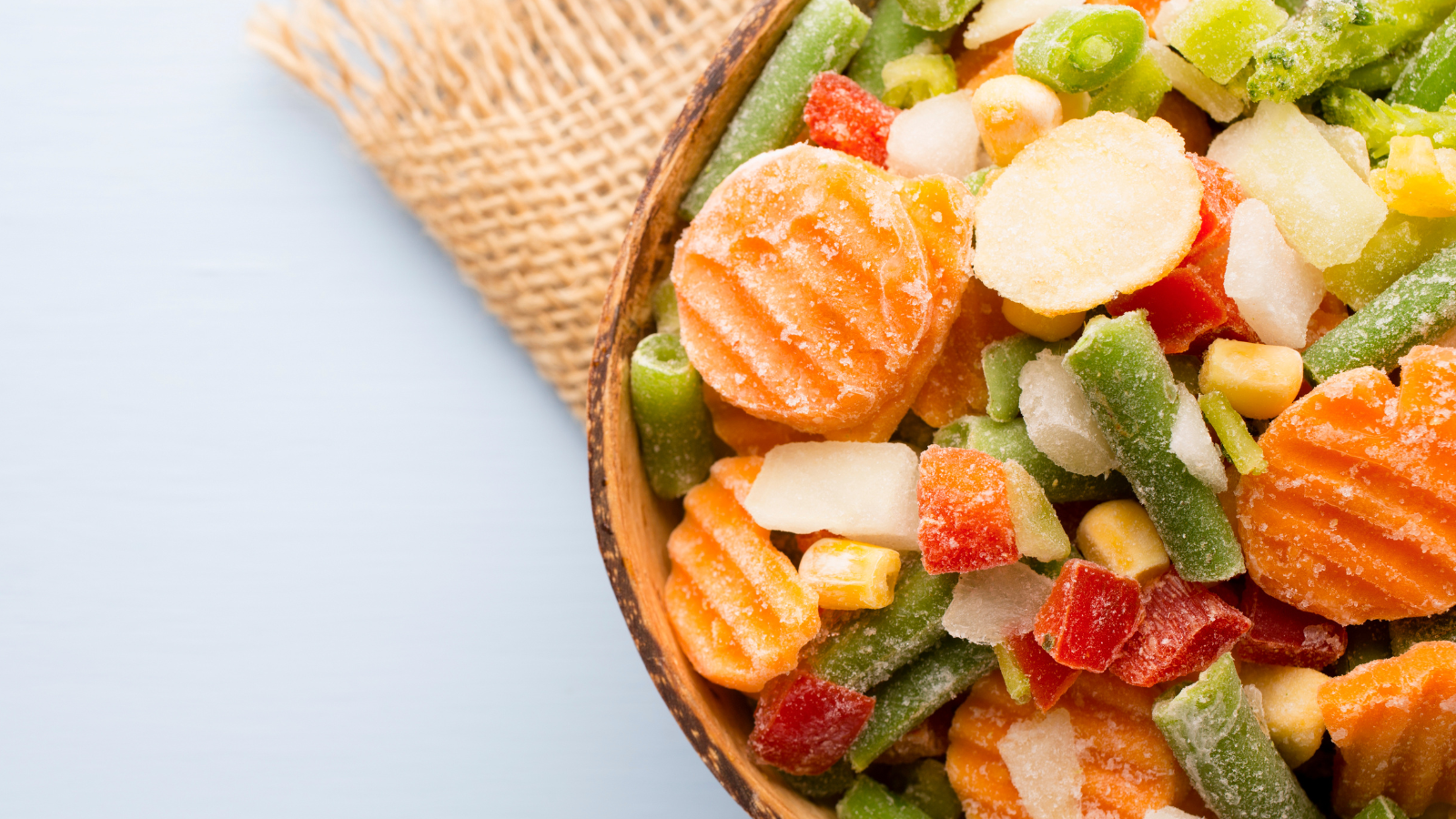Thursday, 05 May 2022
The Food Safety Authority of Ireland (FSAI) and safefood today released findings from a comprehensive study which shows a potential low-level risk of illness for consumers who eat non-ready-to-eat* frozen vegetables, fruits or herbs without prior cooking.
The microbiological study analysed almost 1,000 samples of frozen vegetables, fruits and herbs for the presence of Listeria monocytogenes, Salmonella, Listeria spp. and E. coli. Listeria monocytogenes was found in 27 of the samples tested (3 %), the majority of which were non-ready-to-eat frozen vegetables (21 samples).
The FSAI and safefood stress that whilst the figures were low for the presence of Listeria monocytogenes – it is a potential health risk for people who may eat these non-ready-to-eat frozen foods uncooked frequently, and/or if consumer preparation and handling practices allow Listeria monocytogenes, if present, to grow to levels high enough to cause listeriosis. The consumer research part of the study surveyed 815 people across the island of Ireland and found that 80 % said they regularly eat frozen vegetables, 40 % eat frozen fruits, and 13 % eat frozen herbs. While most (68 %) said they would cook the product before eating, others (32 %) said they regularly eat one or more types of frozen vegetables, fruits or herbs without cooking them. Strawberries, blueberries, raspberries, and mixed berries were the frozen fruits most likely to be eaten uncooked in a dessert or in a smoothie. A smaller number of consumers said they would regularly eat uncooked non-ready-to-eat frozen vegetables such as sweetcorn, carrots, peas, peppers, and spinach in a salad or as a garnish.
The FSAI and safefood advise that all non-ready-to-eat frozen vegetables, fruits and herbs should be cooked prior to eating and in accordance with the cooking instructions on the label. If these products are eaten uncooked by people who are immunocompromised, pregnant, the elderly or young children, there is risk of serious illness. Symptoms of Listeria monocytogenes infection can include mild flu-like symptoms, or gastrointestinal symptoms such as nausea, vomiting and diarrhoea.
Commenting at the release of the study, Dr Pamela Byrne, Chief Executive, FSAI, emphasised the importance of correct labelling and that caterers and food service businesses must ensure they are following the manufacturers’ instructions when they are preparing food for their customers.
“It is vital that food manufacturers follow best practice guidelines and ensure frozen products that are not ready-to-eat are clearly labelled as such, with clear cooking instructions. They also need to ensure there are no serving suggestions presented on the packaging which could suggest that the products can be eaten thawed without prior cooking - whether they be frozen vegetables, fruit or herbs. Caterers and food service businesses must check the food labels and cook the frozen products, if instructed, so as to ensure that the food they are serving to their customers is safe to eat.”
Commenting, Dr Gary A Kearney, interim Chief Executive safefood said: "We know from social media that there's a growing trend for people to eat frozen fruit and vegetables raw in things like smoothies and salads. While the risk of contracting a Listeria infection is low, it's still a risk you can avoid by reading the manufacturer’s instructions and cooking these frozen foods before you eat them. Those most at risk from a Listeria infection include young children, pregnant women and people with an underlying medical condition or weakened immunity, If the product says, 'cook before eating', we would remind people to always follow that advice."
National microbiological survey and consumer habits in relation to frozen vegetables, fruits and herbs.
-ENDS-
Note to Editors:
*Non-ready-to-eat foods are required by the manufacturer to be fully cooked prior to eating by following the cooking instructions labelled on the packaging.
The national microbiological survey was undertaken was undertaken in light of a European outbreak of Listeria monocytogenes, where there were 53 cases and 10 fatalities linked to the consumption of uncooked non-ready-to-eat frozen sweetcorn and frozen vegetable mixes containing sweetcorn, and also against a backdrop of increased consumer interest in eating frozen fruit, vegetables and herbs. It was undertaken between August and November 2019 by the Food Safety Authority of Ireland (FSAI) in conjunction with the Environmental Health Service, and the Health Service Executive Official Food Microbiology Laboratories to gain a better understanding of the microbiological quality of ready-to-eat and non-ready-to-eat frozen vegetables, fruits and herbs placed on the market in Ireland.
The consumer survey was conducted by Ipsos MRBI on behalf of safefood with fieldwork undertaken between January and March 2020 on an all-island basis. The total sample size was 815 adults who were interviewed face-to-face. The survey asked participants a series of questions to determine their awareness and understanding of the potential risks from consuming uncooked frozen vegetables, fruits and herbs.

.png?w=1600&h=900&ext=.png&width=400&resizemode=force)